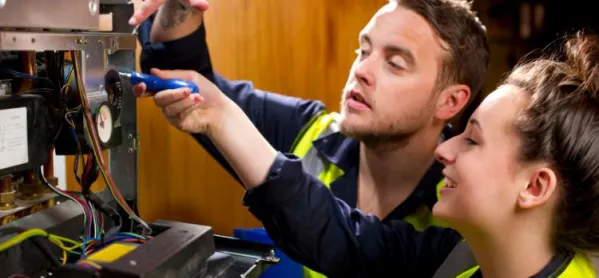- Home
- More UTCs face closure without extra government support, researchers warn
More UTCs face closure without extra government support, researchers warn

University technical colleges will “continue to struggle” unless they get more support from the government, researchers have warned.
The first UTCs opened in 2011, for students aged 14 to 19, and usually specialise in science, technology, engineering and mathematics (Stem)-related areas.
However, the programme has been hit by the closure or repurposing of four UTCs, with a further four announcing they will close or change their status to a different type of school this summer.
A report by the National Foundation for Educational Research, released today, highlights a series of challenges many UTCs face, including under-recruitment, high absence rates and poor exam results.
It calls for the government to do more to support UTCs, and says: “Unless UTCs get more support from government to overcome some of the inherent challenges they face, we believe they will continue to struggle and be vulnerable to closure.
“Over time, this may damage the credibility of the technical/vocational sector. If the government is not prepared to provide this support, it might be best for it to reconsider the rationale and purpose of UTCs.”
The NFER says the government should look for ways to make it easier for UTCs to recruit pupils, and examine whether the way they are held to account needs to change (see recommendations, below).
A Department for Education spokesperson said: “The best UTCs provide excellent technical education, equipping young people with high-level technical skills to meet the needs of the UK economy. We want to build on that good work by strengthening the programme through partnerships with successful secondary schools, multi-academy trusts and raising awareness of UTCs among parents and pupils.”
Key findings from the report:
Most UTCs struggle to recruit enough pupils
Of the 37 UTCs which have been open for at least two years, almost two-thirds are operating below 50 per cent capacity, which the authors describe as “unlikely to be sustainable in the medium term”. Only three are at least 75 per cent full.
However, the report says that their struggle to recruit should not be surprising, considering the difficulty new schools have in establishing themselves, the need for pupils to change schools at the age of 14 and the reported difficulties getting information to prospective students.
UTC intake is similar to their ‘feeder schools’
The intake of UTCs “broadly mirrors” that of mainstream school demographics, but pupils are less likely to come from the top 20 per cent of students nationally, based on their Sats results. However, the report says UTC pupils “are more representative of their peers in their feeder schools which the UTC students previously attended”.
UTCs have a higher absence rate
Future UTC students have similar absence rates to other pupils in their school at the start of key stage 3, but the report says the rate becomes “significantly higher” for UTC students during key stage 4. The authors suggest there are “some challenges with engagement for UTC students during that period”.
UTC students tend to perform worse at key stage 4
The report says “the average Attainment 8 and Progress 8 scores for UTC students are significantly lower than their peers in their feeder schools”. However, it adds that there are “large differences” between the highest and lowest-attaining UTCs: many are “well below” the national average, while “a small number” have good Attainment 8 scores, but make less progress.
There are concerns over how the success of UTCs is measured
The authors question whether it is fair to use headline accountability measures to judge UTCs, as they do not recognise the composition or breadth of the curriculum offered by most UTCs. Also, the UTCs are only responsible for two of the five years students spend in secondary education, but are held to account for all five years.
Key recommendations:
- Assess the performance of UTC students at their point of entry, so UTCs can be held to account for the time they spend there.
- “Urgently examine” how well the current headline accountability measures fit with the curriculum and purpose of UTCs. If they are not fair to UTCs, the government should consider adapting them, perhaps with more focus on destination and employability skills.
- Review the non-accredited technical and vocational qualifications offered by UTCs, and provide guidance about suitable accredited alternatives where they exist.
- Examine disincentives in the system that make it hard for UTCs to recruit pupils. The authors give the impact on school funding as an example.
- Commission research on the reasons why some UTCs are more successful.
- Continue to “carefully monitor” how UTCs are performing, and investigate their performance “based on more appropriate performance measures”.
Want to keep up with the latest education news and opinion? Follow Tes on Twitter and like Tes on Facebook
Keep reading for just £1 per month
You've reached your limit of free articles this month. Subscribe for £1 per month for three months and get:
- Unlimited access to all Tes magazine content
- Exclusive subscriber-only stories
- Award-winning email newsletters



